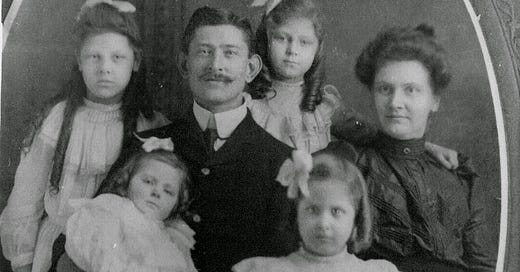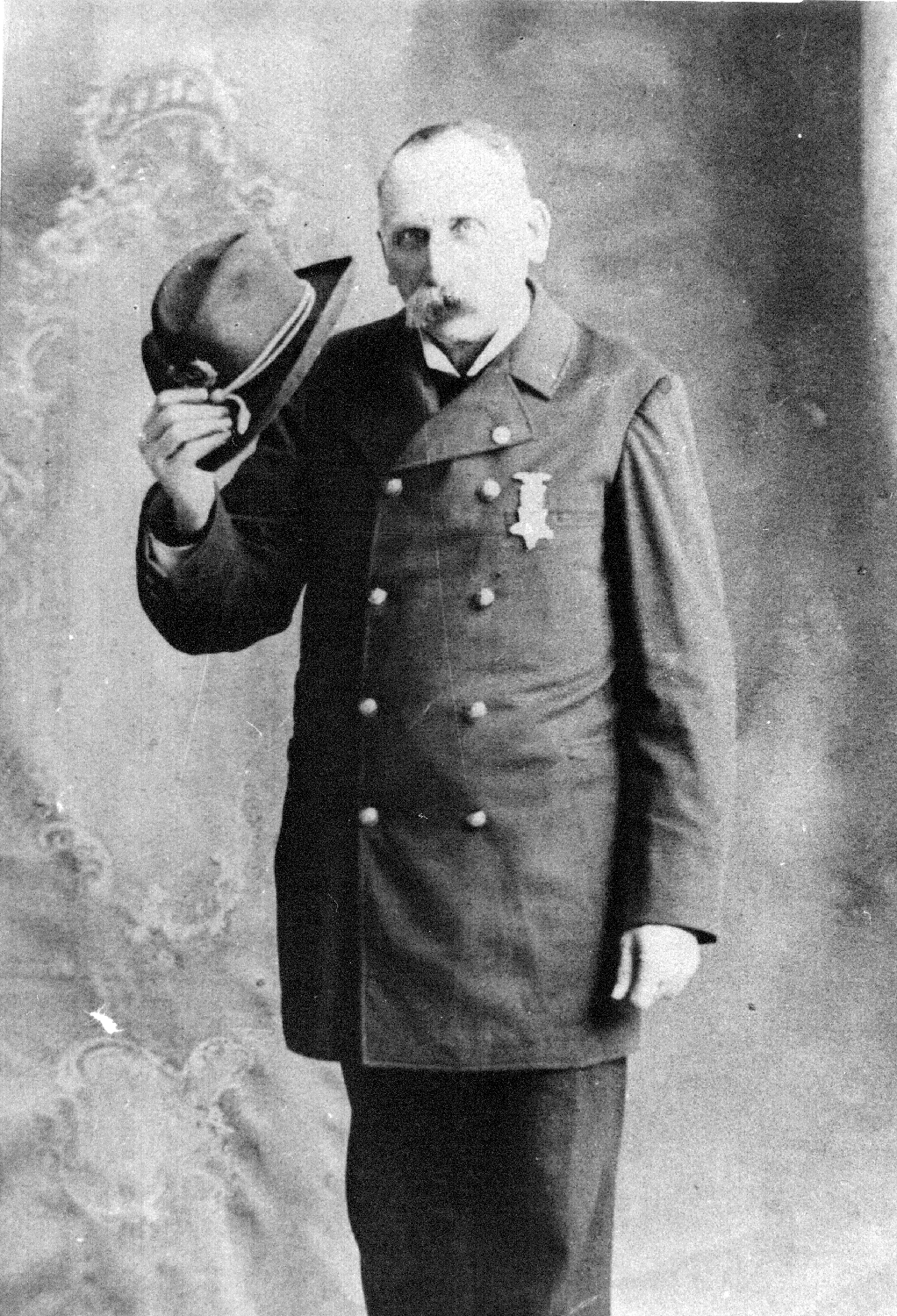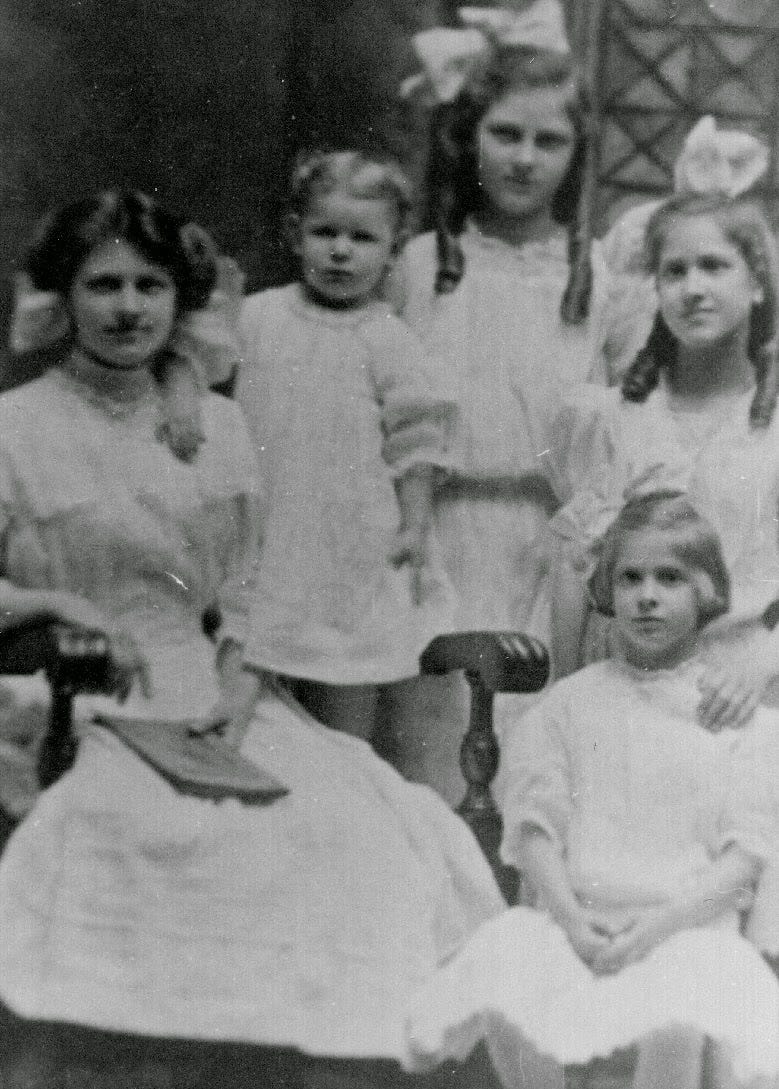Love and Loss in Old New York (and New Jersey)
Joseph Frey (abt. 1823 - 1877) led a short but interesting life.
Born in Germany, in the mid-1820s, he came to settle in New York, probably during the 1830s or early 1840s. His birthday is listed on various documents as ranging from 1823 to 1828, and his birthplace is usually listed as either "Baden" or "Wurttemberg", but other sources say his parents may have been from a small French town near the Swiss border, or that he was born in Switzerland.
These were very difficult times for working-class people in Europe. Between successive revolutions in France, uneasy relations amongst the old Empires, and terrifying epidemics - particularly cholera - sweeping through the increasingly crowded and unsanitary cities, a young man looking across the ocean might have been strongly attracted to the relative prosperity and peacefulness of the United States.
Once settled in one of the German-speaking neighborhoods around New York, that young man would have become part of the story of that young, still experimental nation. He would have seen the growing stream of immigrants from Ireland pouring through New York Harbor during the so-called Potato Famine of the 1840s; he would have seen politicians arguing about Westward expansion; and he would have heard about threats of war from Britain, France, and Mexico. Without records or writing from Joseph's point of view, I have to assume from the evidence available that he found his place in America, and decided to invest himself in it.
When President Polk maneuvered the U.S. into war with Mexico, Joseph enlisted as a private in Company A, 5th Regiment of Infantry, New York Volunteers. He signed up for a 5-year term on 3 December 1846 but was discharged honorably after 11 months and 24 days on 27 November 1847 after the relatively quick American victory at Mexico City.
On March 11, 1849, he married Elizabeth Horn in the Lutheran church in Williamsburg, New York, and they began raising their family; Frederick (1851), Maggie (1853), William (1856), Theodore (1858), and the twins, Edwin August and Edward (1859).
As a veteran soldier and a member of a close-knit community in a burgeoning New World city, I like to imagine that this would have been a happy and hopeful decade for Joseph and Elizabeth. Despite the growth of the anti-immigrant sentiment in the 1840s and 1850s, people like the Freys were learning how to thrive in the "melting pot" of New York. Joseph was listed in the 1860 census - along with Elizabeth and the children listed above - and identified as a brush maker, which implies that he was literate and educated, and moderately well-off.
And then there came another war.
Enlisted in Captain Robinson's Company of New York Volunteers on 6 September 1861, Joseph re-enlisted on 15 November 1863 and was discharged and mustered out with the Company on 21 June 1865. His pension records say he contracted seriously debilitating rheumatism during his time in service, and while he and Elizabeth had two more children - Augusta ("Gussie", b. 1865) and my great-great-grandfather, Emil Adolph Carl (1869) - his health would never fully recover.
In 1870, Joseph had taken his brush-making profession back up, and his older sons and daughter seem to have been helping with the house and the business in the Flushing neighborhood of Queens, New York. But his condition seems to have deteriorated so that sometime around 1876, he had to move into the Soldier's Home in Washington, DC - where he died in February 1877, barely 50 years of age.
By 1880, Elizabeth had moved the family to Newark, New Jersey, probably to be near her brother's family, and the Freys lived at 103 Congress Street for many years. Young Emil met Miss Emily Amelia Opp, whose family split their time between a cottage in nearby Paterson (about 15 miles from Newark) and Dansville, in upstate New York.
Emil and Amelia were married around 1894 in Dansville and settled back in Newark. They had six daughters: my great-grandmother, Edna (1895), Elizabeth "Bessie" May (1897), Blanch (1899-1900), Marjorie (1900), Grace (1902), and Theresa "Tessie" Decker (1908).
I have the impression that Emil found a second family in the Opps. Amelia's father, Jacob, was a veteran of the late war, just like Emil's father. He worked as a locomotive engineer, which might account for his family seeming to simultaneously live in two towns separated by nearly 300 miles. For example, in 1900, Emil and Amelia and their girls show up twice in the Census records - once in the home of Susan Opp (Jacob's widowed mother) and once in their own home in Newark. Interestingly, the two records were enumerated only about a week apart - one on the 1st and one on the 9th of June - suggesting that they were recorded both while visiting Dansville AND after their return home to Newark.
These years seem to have been happy ones for Emil. He worked as a grocer and (according to a Frey family tradition) as a Borden's milk delivery man. It isn't clear what caused the tragic loss of little Blanch before her second birthday, but the other girls seem to have all been healthy and the family seems to have prospered. Sadly, Emil and Amelia would not see their twentieth wedding anniversary.
In 1910, Jacob was listed in the Census records as living in Emil's household, where he apparently lived out his days. He succumbed to pneumonia in July 1913, only a few months after Amelia died, in March of that year. At this writing, I am just shy of my twentieth anniversary myself; I know how I would feel if I lost my lovely bride right now. If my impression of their relationship is correct, Emil then immediately lost someone who may have been like a surrogate father for an even longer time. Then, as if that weren't enough, Emil's mother, Elizabeth, died in 1914 of Bright's disease at the age of 86.
This all seems to have been too much for him. Emil's older daughters, Edna and Bessie, began working to support the family, and they took care of the younger girls. By 1920, Edna was married to Alfred Tuttle; Bessie was working as a legal clerk, living with the other girls in a rented house on Fourth Street in Newark while they attended school; and Emil was an inmate in the Essex County Hospital Center (also called Overbrook hospital) in Cedar Grove.
My grandmother, Edna's younger daughter, recalls visiting Emil in the hospital. She told me, "We used to visit him every Sunday, and take him fruit and treats. I was very young then of course." She would have been 11 years old when he died of pneumonia in February 1936.
Today, approaching 2015, I have to wonder if it might have been possible to do more to treat Emil; if we could go back armed with a better understanding of the mind and brain, would we be better equipped to help him, and get him back home with people who loved him? It's hard to know what his life was like those last 16 years; I haven't found records that could describe his condition or diagnosis, and the hospital itself shut down in 2007. It is now a favorite haunt for so-called urban explorers and ghost hunters - thrill seekers more interested in playing up the "spookiness" of old buildings than understanding what life was like for the patients.
At least his life was bookended by heroic people. From his father, the devoted soldier, to his self-sufficient daughters, Emil Frey seems to have been surrounded by love, strength, hope, and joy for most of his life. I will leave it to you to decide whether that lessens or sharpens the tragedy of those last years.






